metoo
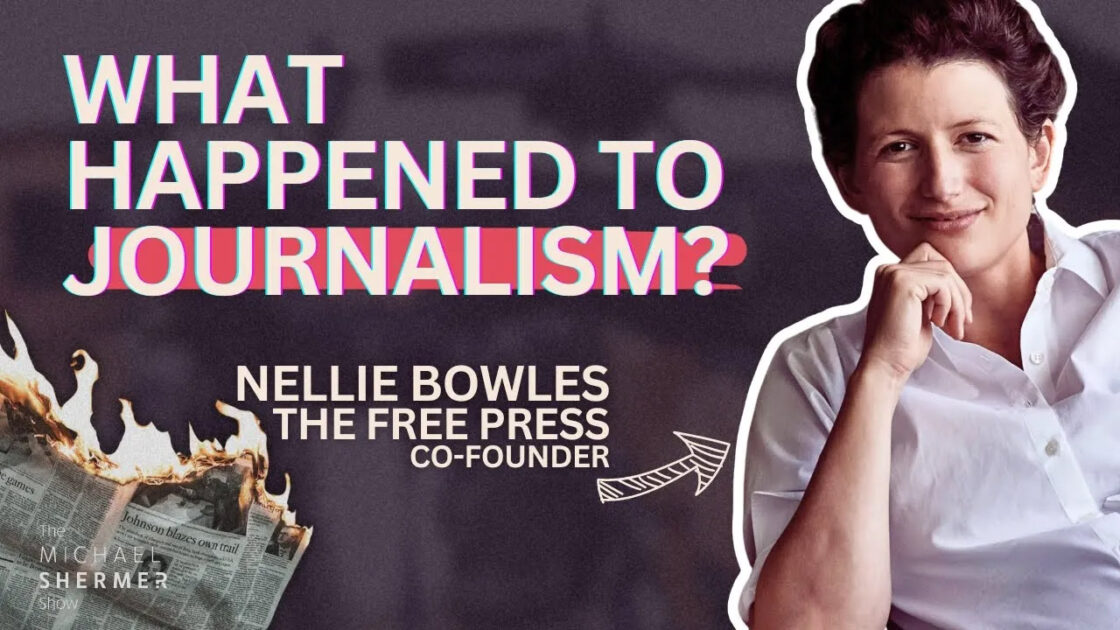
Shermer and Bowles discuss: what it’s like to work at The New York Times • what it’s like to found a new media company • same-sex marriage • Liberalism vs. Progressivism • the Black Lives Matter, #metoo, and transgender movements • Patrisse Khan-Cullors • White privilege • somatic abolitionism • LGBTQ • IDAHOBIT • BBIPOC • CHAZ • homelessness • anti-racism • cancel culture • defund the police • protests.
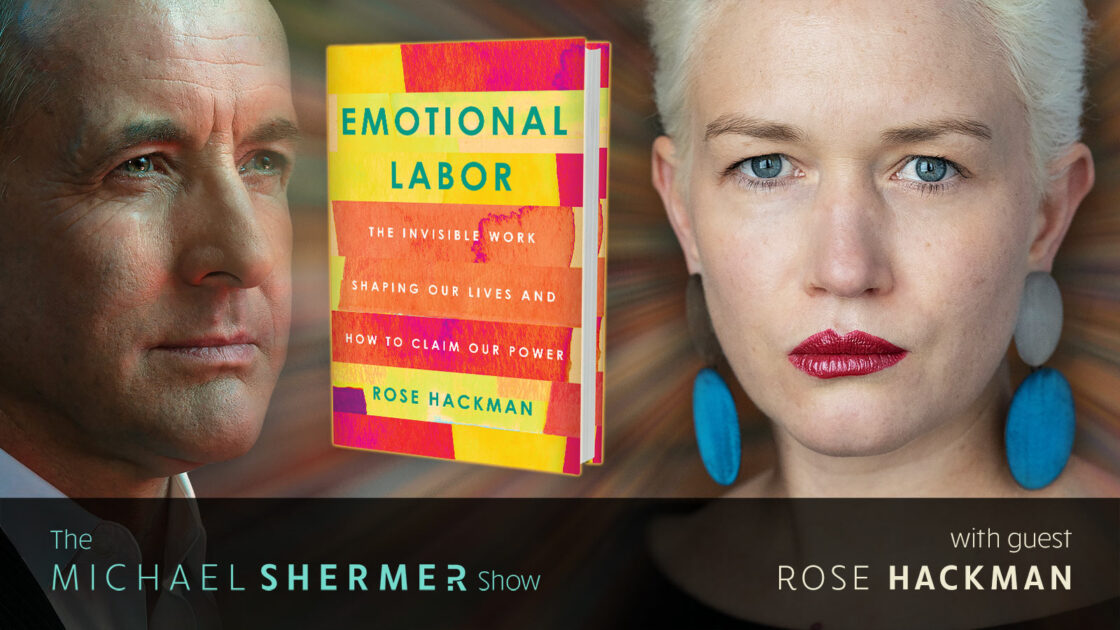
Shermer and Hackman discuss: • her journey to researching emotional labor • What is emotional labor? • sex/gender differences in emotions • equality vs. equity • income inequality between men and women • Richard Reeves’ book, Of Boys and Men • why women are more risk averse • sex and emotional labor • sex work and prostitution • pornography • #metoo • emotional capitalism • liberal vs. conservative attitudes about emotional labor and gender differences.
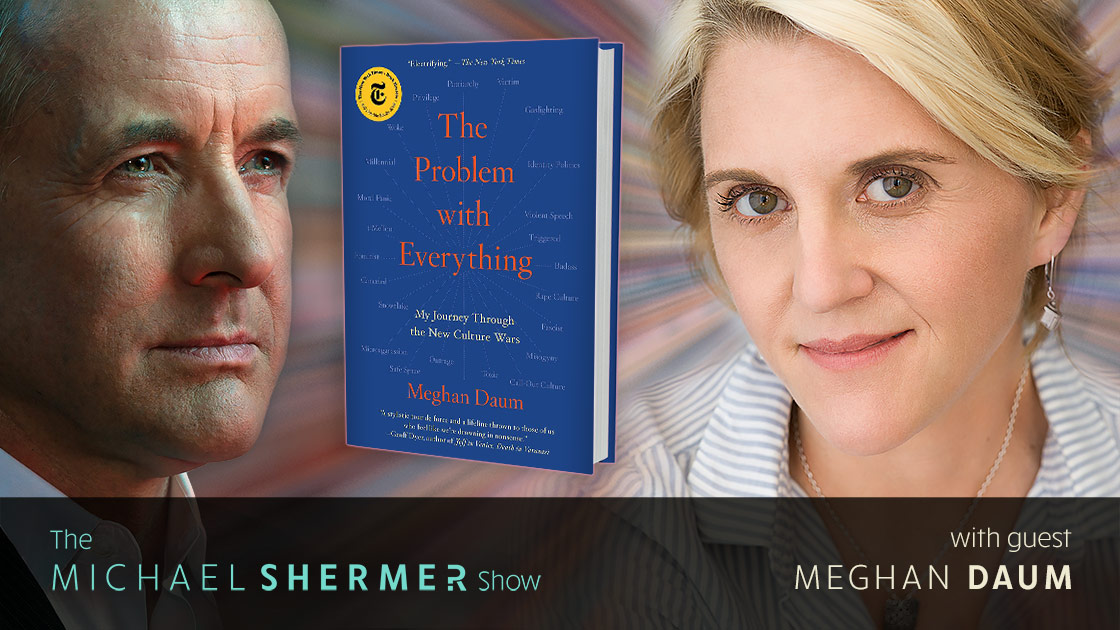
Shermer and Daum discuss: unauthorized autobiography • Feminism (first, second, third wave, and beyond) • Was the sexual revolution good or bad (or both) for women? • badassery, problematica, wokescenti, cognoscenti • Gen Xers • Elders • What is a woman? • Sex and Gender • who you identify as vs. who you’re attracted to • Trans • #metoo and #BLM movements • intersectionality • toxic masculinity • wokeness, liberal vs. progressiveness, far left vs. left • cancel culture, and…
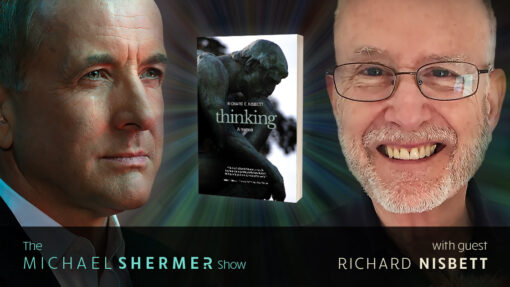
In a wide-ranging conversation Shermer and Richard Nisbett discuss Nisbett’s research showing how people reason, how people should reason, why errors in reasoning occur, and how much you can improve reasoning.
Michael Shermer is now writing on Substack with a new, weekly column called Skeptic: Examining the World Through a Scientific Lens. PLUS in a wide-ranging conversation Shermer and Richard Nisbett discuss Nisbett’s research showing how people reason, how people should reason, why errors in reasoning occur, and how much you can improve reasoning.

Democracy is in trouble. Why? In episode 214, Michael Shermer speaks with Tom Nichols about his book Our Own Worst Enemy: The Assault From Within on Modern Democracy challenges the current depictions of the rise of illiberal and anti-democratic movements in the United States and elsewhere, placing on the people themselves, the growth of unchecked narcissism, rising standards of living, global peace, and a resistance to change.
In episode 214, Michael Shermer speaks Tom Nichols about his book Our Own Worst Enemy: The Assault From Within on Modern Democracy. PLUS, don’t miss our digital subscription sale: $14.99 for 7 issues, until October 9, 2021!
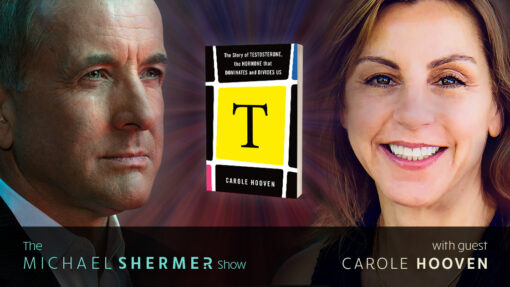
In episode 204, Michael Shermer speaks with codirector of undergraduate studies in the Department of Human Evolutionary Biology at Harvard University, Carole Hooven, PhD about testosterone. While most people agree that sex differences in human behavior exist, they disagree about the reasons. But the science is clear: testosterone is a potent force in human society, driving the bodies and behavior of the sexes apart.
In episode 204, Michael Shermer speaks with codirector of undergraduate studies in the Department of Human Evolutionary Biology at Harvard University, Carole Hooven, PhD about testosterone. While most people agree that sex differences in human behavior exist, they disagree about the reasons. But the science is clear: testosterone is a potent force in human society, driving the bodies and behavior of the sexes apart.

In episode 199, Michael Shermer and David Potter take a deep dive into disruptions. What are the conditions in which radical change happens? Is democracy in trouble? Not all radical groups are the same, and all the groups that the book explores take advantage of mistakes that have challenged belief in the competence of existing institutions to be effective.
In episode 199, Michael Shermer and David Potter take a deep dive into disruptions. What are the conditions in which radical change happens? Is democracy in trouble? Not all radical groups are the same, and all the groups that the book explores take advantage of mistakes that have challenged belief in the competence of existing institutions to be effective.
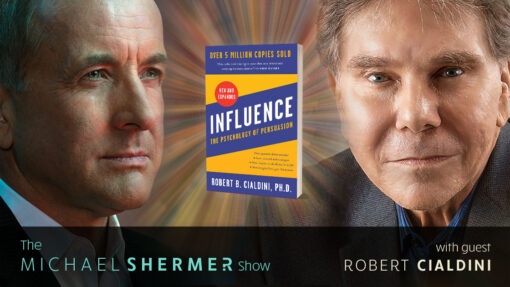
In episode 187, Michael speaks with Robert Cialdini — New York Times bestselling author of Pre-Suasion and the seminal expert in the fields of influence and persuasion — about the psychology of why people say yes and how to apply these insights ethically in business and everyday settings.
In episode 187, Michael speaks with Robert Cialdini — New York Times bestselling author of Pre-Suasion and the seminal expert in the fields of influence and persuasion — about the psychology of why people say yes and how to apply these insights ethically in business and everyday settings. PLUS, the newest issue of Skeptic magazine (26.2: Drug Trips & Reality) is now available in print and digital formats.
In this column social psychologist Carol Tavris discusses two new books whose authors separate what’s right in the pursuit of justice from what’s self-righteous. As skeptics, they repudiate received wisdom and party loyalty, showing that by separating what we wish for from wishful thinking, we can find better, more creative, more flexible routes to attaining the former.
In Science Salon # 118 Michael Shermer speaks with distinguished artificial intelligence researcher Stuart Russell about this new book Human Compatible: Artificial Intelligence and the Problem of Control. PLUS social psychologist Carol Tavris discusses two new books whose authors separate what’s right in the pursuit of justice from what’s self-righteous.
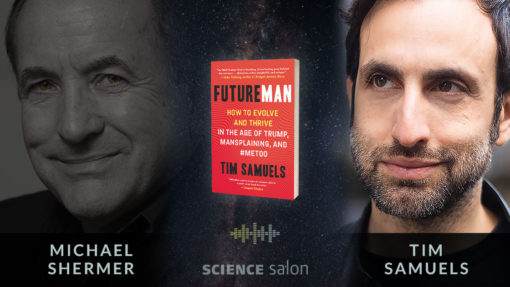
If ever there was an urgent need for a frank understanding of what’s going on with men, it is now. Male rage and frustration have driven resurgent populism, mass shootings, and epidemics of addiction and violence. Powerful men who have abused their positions for decades have been and are being #MeToo-outed and dismissed. The patriarchy, that solid bedrock of male power for thousands of years, seems to be crumbling…
In Science Salon # 92 Michael Shermer speaks with Tim Samuels about his brand new book: Future Man: How to Evolve and Thrive in the Age of Trump, Mansplaining, and #MeToo. PLUS: Michael Shermer reviews The Violence Paradox, a PBS NOVA film special based on Steven Pinker’s book The Better Angels of Our Nature.
In Science Salon # 72, Michael Shermer speaks with visionary astronautical engineer Robert Zubrin where he lays out the plans for how humans can become a space faring, multi-planetary civilization; PLUS social psychologist Carol Tavris reminds us just how imperative it is that justice requires us to assess the evidence when public opinion and emotion are weighted heavily in favor of one side.

Social psychologist Carol Tavris reminds us that justice requires us to assess the evidence, and that this requirement is especially imperative when public opinion and emotion are weighted heavily in favor of one side.

Science writer and weekly advice columnist Amy Alkon debunks widely-accepted but scientifically unsupported notions about self-esteem, shame, willpower, and more and demonstrates that thinking your way into changing (as so many therapists and self-help books advise) is the most inefficient way to go about it. Shermer and Alkon also get into the #metoo movement, evolutionary psychology, politics, depression, suicide, Jordan Peterson, and other fascinating topics.
NEXT →



















